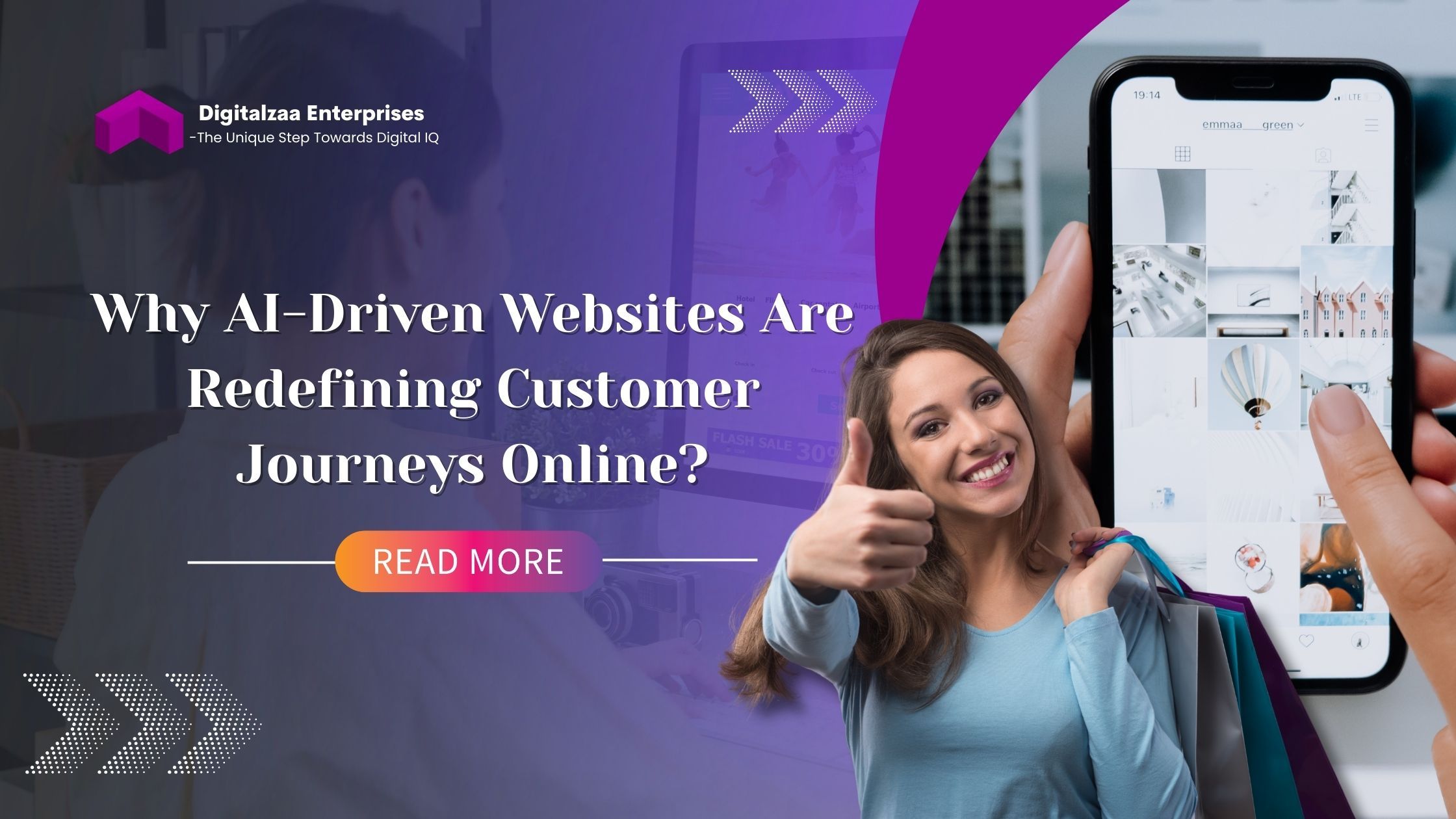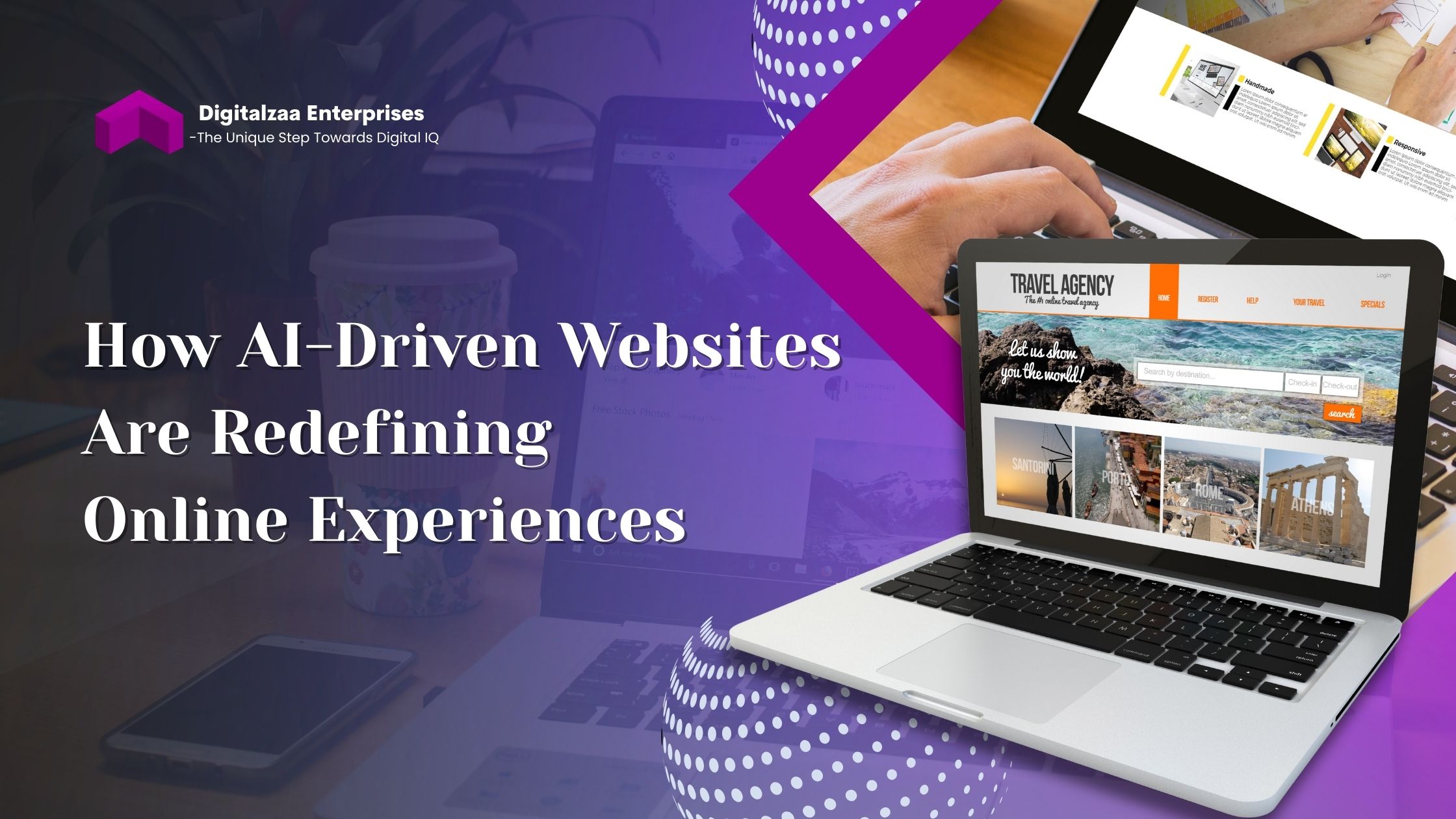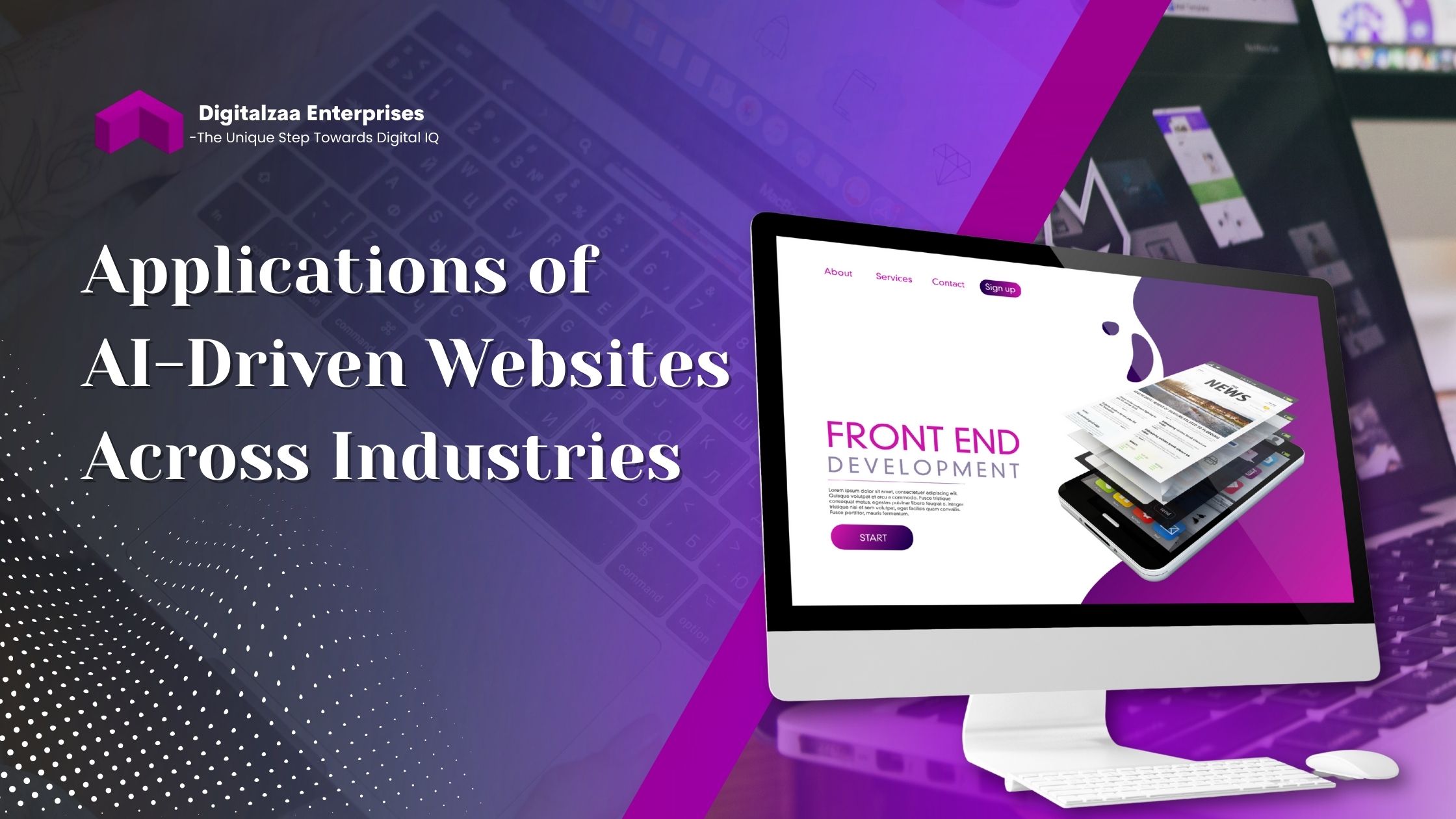Why AI-Driven Websites Are Redefining Customer Journeys Online?

In today’s digital-first economy, websites are no longer just static platforms for information. They are living, evolving ecosystems that influence how customers discover, engage, and purchase products or services. The advent of AI-driven websites has revolutionized the way businesses interact with their audiences, making the customer journey online more intuitive, personalized, and seamless than ever before.
With artificial intelligence shaping web experiences, businesses can create highly adaptive platforms that learn from user behavior and deliver real-time solutions. This shift is redefining traditional approaches to customer engagement, making the personalized user experience the cornerstone of modern digital strategies.
In this blog, we’ll explore how AI-driven websites are transforming online customer journeys, the key benefits they provide, and why this shift is crucial in the age of digital transformation.
The Evolution of the Customer Journey Online
Traditionally, customer journeys followed a linear pattern—awareness, consideration, decision, and loyalty. Businesses mapped out these touchpoints with static websites and basic engagement strategies. However, modern consumers expect much more. They want instant responses, personalized recommendations, and seamless navigation across digital platforms.
With attention spans shrinking and competition intensifying, companies cannot rely on static, one-size-fits-all web experiences. This is where AI-driven websites step in to completely reimagine how customers interact online.
Unlike traditional websites, AI-powered platforms use machine learning, predictive analytics, and natural language processing to dynamically adapt to user behavior. They anticipate customer needs, provide personalized product suggestions, and create a journey that feels less like a sales funnel and more like a guided experience.
How AI-Driven Websites Are Redefining Online Experiences

AI is not just a technological upgrade; it is a strategic enabler of digital transformation. Businesses across industries are leveraging AI to transform their websites into intelligent platforms that respond, adapt, and learn continuously. Here’s how:
1. Personalization at Scale
A personalized user experience is no longer optional; it is an expectation. AI allows businesses to analyze massive amounts of user data—such as browsing history, past purchases, and even social media activity—to create hyper-personalized experiences.
For example:
- E-commerce websites recommend products tailored to a user’s browsing habits.
- Media platforms suggest shows or articles based on past interests.
- Travel websites customize package deals based on preferred destinations.
This level of personalization enhances customer satisfaction and strengthens brand loyalty.
2. Intelligent Chatbots and Virtual Assistants
AI-powered chatbots have become indispensable to the customer journey online. They provide 24/7 support, answer queries instantly, and guide customers through the decision-making process.
Unlike traditional customer support, AI chatbots learn over time, offering increasingly accurate responses. They also reduce operational costs for businesses while improving customer engagement.
A well-programmed chatbot doesn’t just answer questions—it anticipates them, shortening the path between inquiry and purchase.
3. Predictive Customer Insights
AI-driven websites go beyond serving current needs; they predict future ones. By analyzing user behavior patterns, AI can anticipate what customers may want next.
For instance, if a visitor frequently checks out fitness gear but hasn’t purchased yet, the website can proactively show limited-time discounts or bundle offers to encourage conversion.
Predictive analytics also helps businesses forecast trends, optimize inventory, and design targeted campaigns—making AI a catalyst for business growth.
4. Voice Search and Conversational Interfaces
The rise of voice-activated devices like Alexa and Google Assistant has reshaped how customers interact online. AI-driven websites now integrate voice search capabilities, making navigation more natural and efficient.
5. Adaptive Content Delivery
AI ensures that the right content reaches the right user at the right time. Websites powered by AI can dynamically adjust layouts, offers, and visuals based on user behavior.
For instance:
- First-time visitors may see introductory offers.
- Returning customers may be presented with loyalty rewards.
- High-value leads might receive personalized demos or premium offers.
This flexibility ensures that every customer receives a unique experience, which in turn boosts engagement and conversions.
Benefits of AI-Driven Websites in Shaping the Customer Journey
Businesses that embrace AI on their websites gain a significant competitive advantage. Let’s break down the key benefits:
- Enhanced Customer Engagement: AI creates engaging interactions by offering relevant content, proactive suggestions, and seamless navigation. As customers spend more time exploring tailored experiences, engagement levels increase naturally.
- Faster Decision-Making: By eliminating unnecessary friction and providing instant information, AI-driven websites speed up the decision-making process. Customers no longer need to spend hours researching—they are guided effortlessly toward the right solution.
- Higher Conversion Rates: Personalized recommendations, predictive offers, and AI-driven calls-to-action translate directly into higher conversion rates. Businesses can turn casual visitors into loyal customers with minimal effort.
- Improved Operational Efficiency: AI-powered automation reduces the workload on human teams. From chatbots to automated content recommendations, businesses can save time, cut costs, and allocate resources more effectively.
- Long-Term Customer Loyalty: A well-optimized personalized user experience fosters loyalty. When customers feel understood and valued, they are more likely to return and recommend the brand to others.
Applications of AI-Driven Websites Across Industries

The impact of AI on the customer journey online extends across multiple industries:
- E-commerce: Personalized product recommendations, AI-driven upselling, and chatbot-guided shopping.
- Healthcare: Virtual assistants that help patients book appointments, AI-powered symptom checkers, and health content personalization.
- Banking & Finance: Fraud detection, smart investment recommendations, and AI chatbots for customer support.
- Travel & Hospitality: Dynamic pricing, personalized travel packages, and AI-based itinerary planning.
- Education: Adaptive learning platforms, personalized course suggestions, and AI-based tutoring systems.
Each industry benefits by using AI to enhance engagement and drive customer satisfaction.
AI and the Future of Digital Transformation
The integration of AI into websites is not just a trend—it’s a pivotal step in the broader journey of digital transformation. Companies that embrace AI are better positioned to thrive in a competitive, customer-centric marketplace.
Key future trends include:
- Hyper-personalization: AI will refine personalization down to micro-moments, delivering instant, context-based solutions.
- Augmented Reality (AR) & AI Fusion: Websites will merge AI with AR for immersive customer journeys, such as virtual try-ons for retail.
- Emotion Recognition: AI will analyze facial expressions and tone to adapt customer interactions in real time.
- Sustainable AI Experiences: As eco-consciousness rises, AI will also help businesses design greener, more sustainable customer journeys.
Challenges Businesses Must Overcome
While AI offers immense potential, businesses must navigate certain challenges:
- Data Privacy: Collecting and analyzing customer data responsibly is critical to maintaining trust.
- Implementation Costs: Advanced AI solutions may require significant investment.
- Integration Issues: Aligning AI with existing systems demands careful planning.
- Ethical Concerns: Businesses must ensure AI-driven decisions are fair, unbiased, and transparent.
By addressing these challenges, organizations can unlock the full potential of AI while maintaining credibility and compliance.
Conclusion
The era of static websites is over. AI-driven websites are not just enhancing digital platforms—they are fundamentally transforming the customer journey online. By enabling personalized user experiences, predictive insights, and seamless interactions, AI ensures that businesses can thrive in a world defined by digital transformation.
Organizations that adopt AI today are not just staying ahead of competitors; they are creating meaningful, lasting relationships with their customers. In this rapidly evolving landscape, AI isn’t just redefining customer journeys—it’s shaping the very future of digital engagement.


